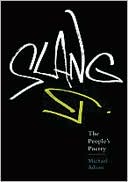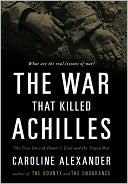Slang: The People's Poetry
Search in google:
Slang, writes Michael Adams, is poetry on the down low, and sometimes lowdown poetry on the down low, but rarely, if ever, merely lowdown. It is the poetry of everyday speech, the people's poetry, and it deserves attention as language playing on the cusp of art. In Slang: The People's Poetry, Adams covers this perennially interesting subject in a serious but highly engaging way, illuminating the fundamental question "What is Slang" and defending slang—and all forms of nonstandard English—as integral parts of the American language. Why is an expression like "bed head" lost in a lexical limbo, found neither in slang nor standard dictionaries? Why are snow-boarding terms such as "fakie," "goofy foot," "ollie" and "nollie" not considered slang? As he addresses these and other lexical curiosities, Adams reveals that slang is used in part to define groups, distinguishing those who are "down with it" from those who are "out of it." Slang is also a rebellion against the mainstream. It often irritates those who color within the lines—indeed, slang is meant to irritate, sometimes even to shock. But slang is also inventive language, both fun to make and fun to use. Rather than complain about slang as "bad" language, Adams urges us to celebrate slang's playful resistance to the commonplace and to see it as the expression of an innate human capacity, not only for language, but for poetry. A passionate defense of slang, jargon, argot and other forms of nonstandard English, this marvelous volume is full of amusing and even astonishing examples of all sorts of slang. It will be a must for students of language and a joy for word lovers everywhere.Library JournalAdams (English language & literature, Indiana Univ.; Slayer Slang: A Buffy the Vampire Slayer Lexicon) offers word lovers a new perspective. This is not the usual compendium of slang but an explanation of its nature and purpose. Adams intends to engage the nonacademic reader, so he boils down the lexical, social, aesthetic, and linguistic concepts of slang in chapters like "What Is It?" and "It's All in Your Head." Footnotes provide source information in a nonscholarly format for faster and easier understanding. Adams promotes slang as an integral part of American English and categorizes and defines hundreds of new words and examples from current American expressions, with an emphasis on African American slang. He believes that slang springs from resistance to authority, which has perhaps influenced his choices, for most exemplify the more outrageous elements of slang. VERDICT The style here will either irritate or entertain; Adams stays within the confines of each chapter's theme but leaps from example to example and topic to topic. These literary gymnastics may not please everyone, but the generous index facilitates access to this lively and informative book.—Nedra Crowe-Evers, Sonoma Cty. Lib., Santa Rosa, CA








